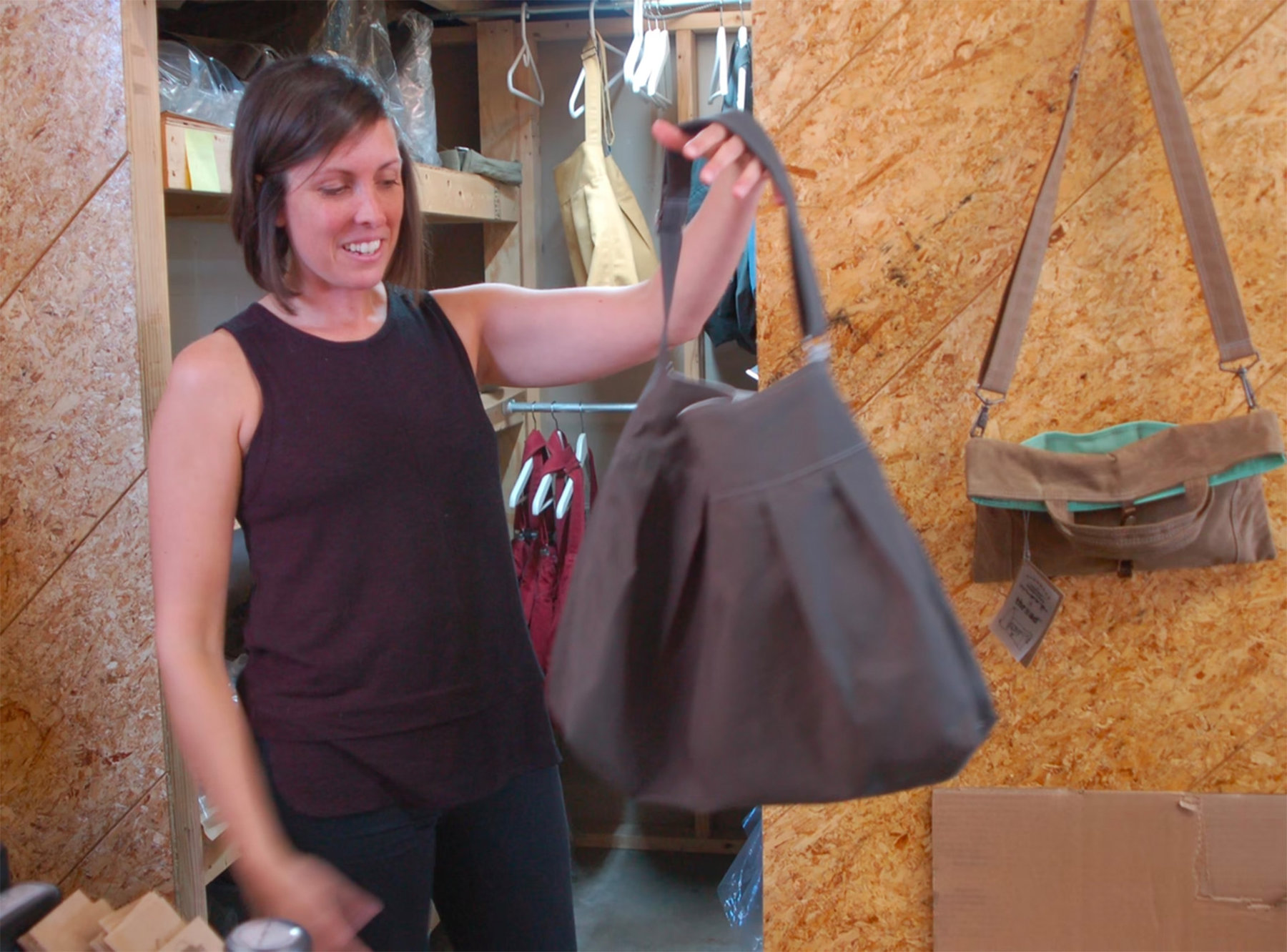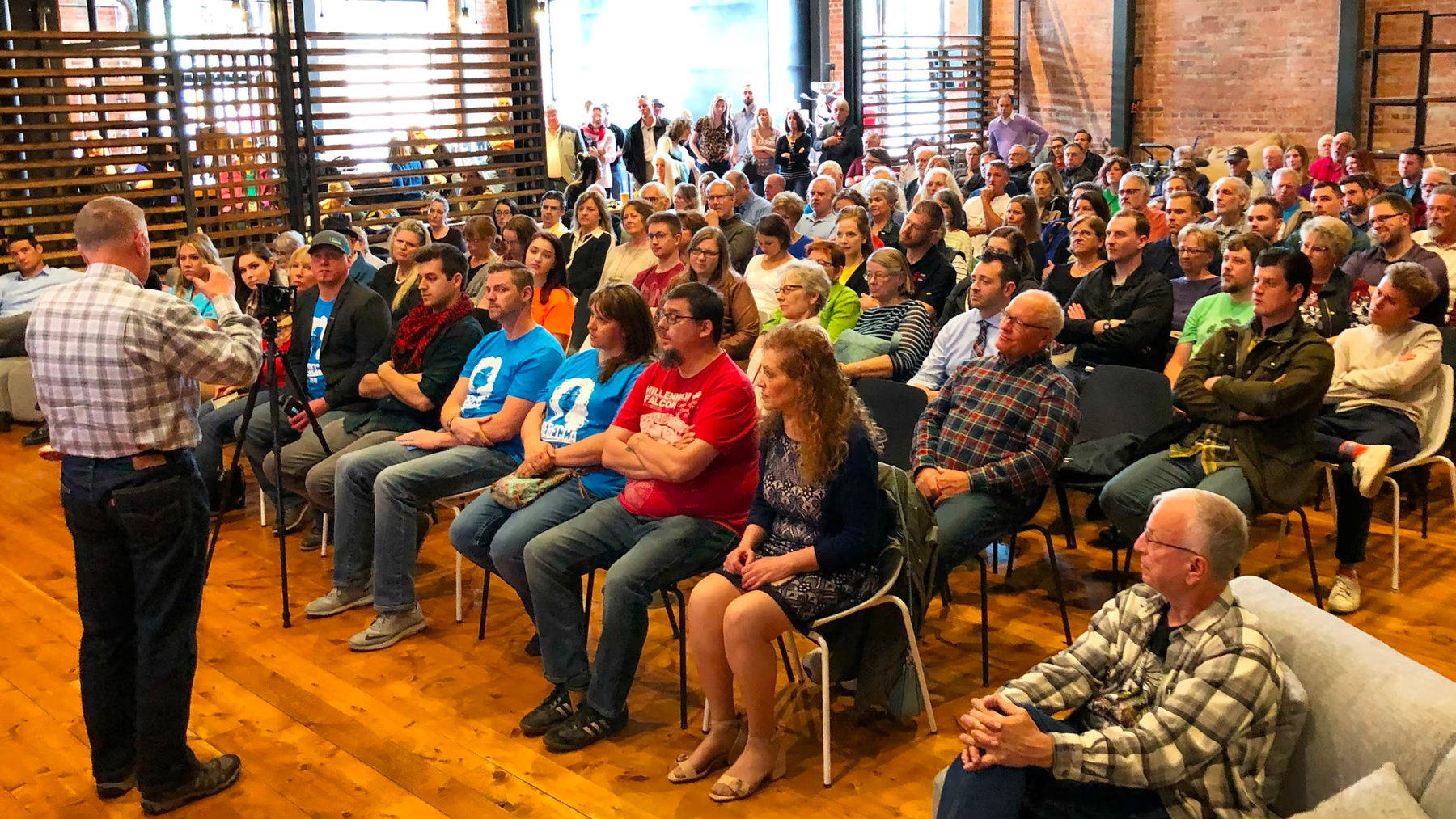“I was actually trying to make a dress, and it went horribly, horribly wrong,” Wendy Downs told me with a charming, self-deprecatory laugh. “It just kind of lay around for a while, and I kept looking at it, thinking ‘This doesn’t work.’ So, I ended up sewing up the sides and then turning it in on itself. I looked at it again and thought ‘Wait a second, I have something here.'”
And that was the beginning of Moop, Downs’s flourishing canvas bag company in Pittsburgh.
I met Downs when I was in Pittsburgh in September for our American Futures series. I wanted to understand the story of Wendy Downs and Moop, which I figured might be a worthy low-tech addition to our accretion of stories about vibrant small companies we’ve seen in our travels around the U.S., a surprising number of which have been high-tech.
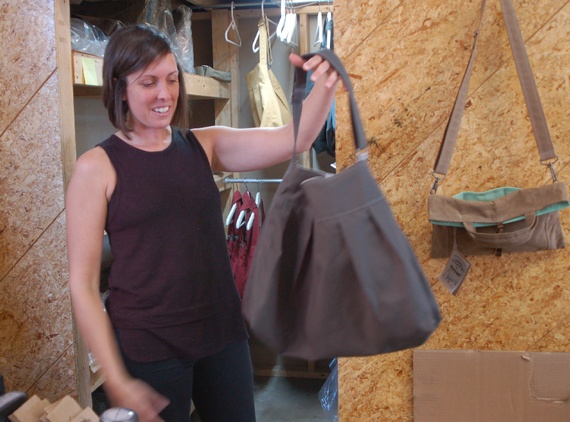
Her friends liked it. “Hey, you should make these and sell them on Etsy!” they said. She was reluctant, she said, “But then one night, I thought Oh, I’ll just try that. So, I put the bag for sale on Etsy and about a week or so later, somebody bought it! And I was so exhilarated. I couldn’t believe that somebody who had no connection to me whatsoever—someone who just saw this bag that I had made—liked it and bought it!” So, she shipped it and decided to try that again. The next one sold within two days. “So I just kept going.” Soon, she was making enough money selling her bags on Etsy to quit her day job and devote herself completely to her new enterprise.
Then, in a big break for Downs, Etsy “featured” Moop on their homepage listings. This was in November of 2007—on Cyber Monday, the largest online shopping day of the year. Her sales leapt from about two per day to about forty per day. “I had to figure out how to make all those. And I had a six-week backlog, and it was just this really incredible time. It was so exhausting.”
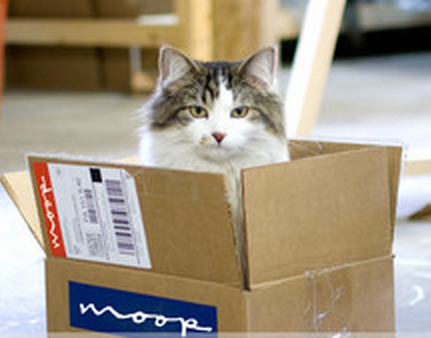
Downs had only one part-time employee then to help her meet that demand. She now has several full-time employees who work with her in a modest production shop where, together, they manage a small but nimble operation, producing and selling hundreds of bags a month. Basically maintaining inventory, they keep just enough of each bag on hand to meet demand. If Downs sees they’re starting to run low on a particular item, she can shift production to that bag quickly and efficiently.
The biggest selling items are The Paperback and the Backpack. And Moop’s first bag, The Market Bag, also continues to sell well. “It’s this really useful, large bag,” Downs says. “Lots of women like to use it as a diaper bag because it doesn’t look like one.”
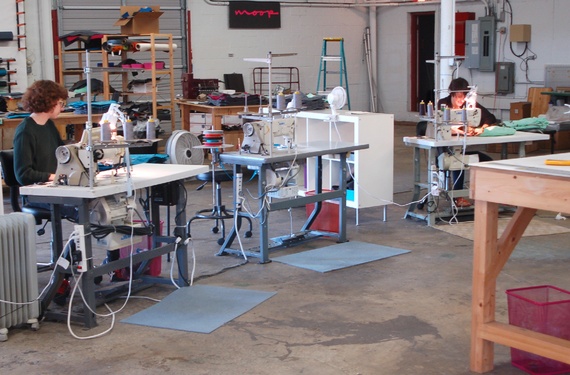
I told Downs that her sophisticated and professional-looking website—Moopshop.com—had led me at first to believe that her company is much larger than it is. She smiled and acknowledged that she had worked hard over the past seven years to build the Moop brand name. She wanted a strong web presence as part of that brand-building, to push business to her own website. “About 10 percent of our customers still find us through Etsy. But if you buy something on Etsy, you say, ‘I got this on Etsy.’ That’s fine, but it’s better for me to have people saying, ‘I got this from Moop.'”
Downs noted one droll downside to the big-company image her website conveys. “Sometimes we get these crazy orders or requests. The Tribeca Film Festival got in touch about a year ago and asked us to donate 4500 bags!” she said with an incredulous laugh. “Things like that are an interesting window into how other people are interpreting our size.”
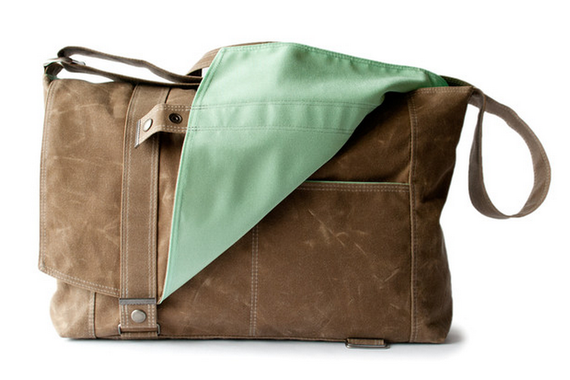
Moop is at the stage where Downs is experiencing some of the concerns familiar to socially responsible entrepreneurs like her. There are inevitable growing pains—the tensions between getting bigger and maintaining the special culture of the small company one has built from the ground up:
- Downs likes Moop’s current size, the small-company environment of the workshop, the intimacy and friendliness of her association with her few employees, whom she’s able to pay a decent wage. How will that change if she continues to experience a 20 percent growth rate each year?
- She likes sourcing her supplies as responsibly as she can, buying her waxed canvas from Martexin, a family-owned (seventh-generation!) company based in New Jersey, and now, much of her lining fabric from Thread, a new Pittsburgh startup that I profiled here last week, that makes its fabric from recycled plastic bottles.
- And she likes her interactions with her customers. Moop’s website also carries Downs’s blog (see examples here and here), on which she “opens up to people” about her life and her business philosophy which, she says, increasingly seem inseparable. And she believes it’s part of what people like about Moop, and why her customers are so devoted to Downs and her bags. “People buy from me because they like the story. It’s real. It wasn’t crafted by some marketing firm. So, my customers are very, very loyal. And they send me these incredible stories about what purchasing a bag from me meant to them.”
My guess is that the story of Moop will be an inspiration for other entrepreneurs in America’s exciting, growing Maker industry.
See this video about Downs and Moop, made by Moosehead Lager a couple of years ago. It captures the essence of Moop’s hand-made manufacturing process and philosophy.

